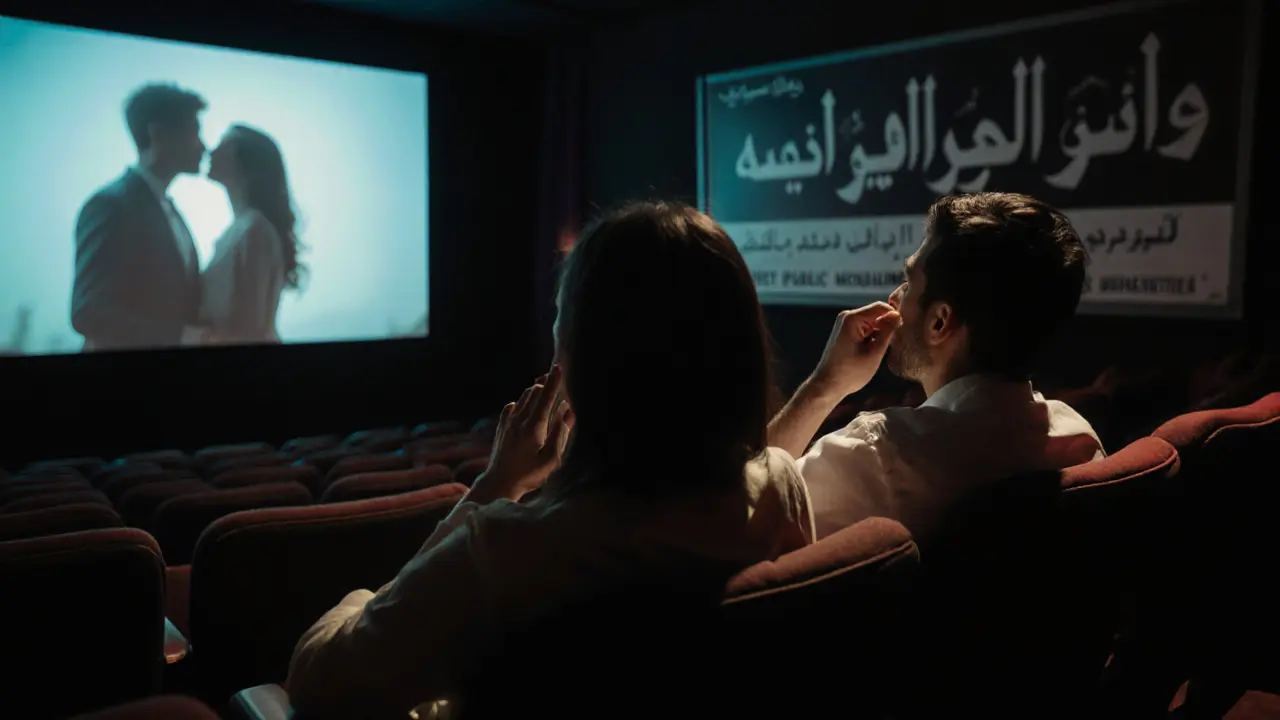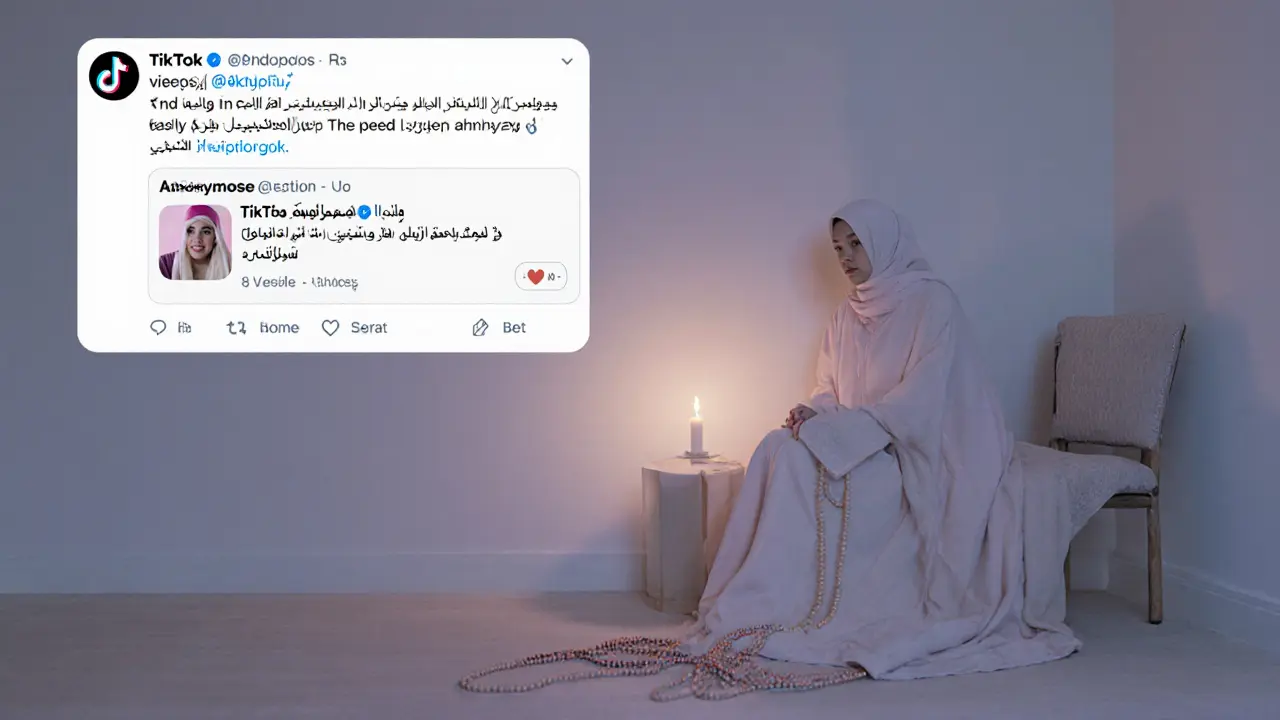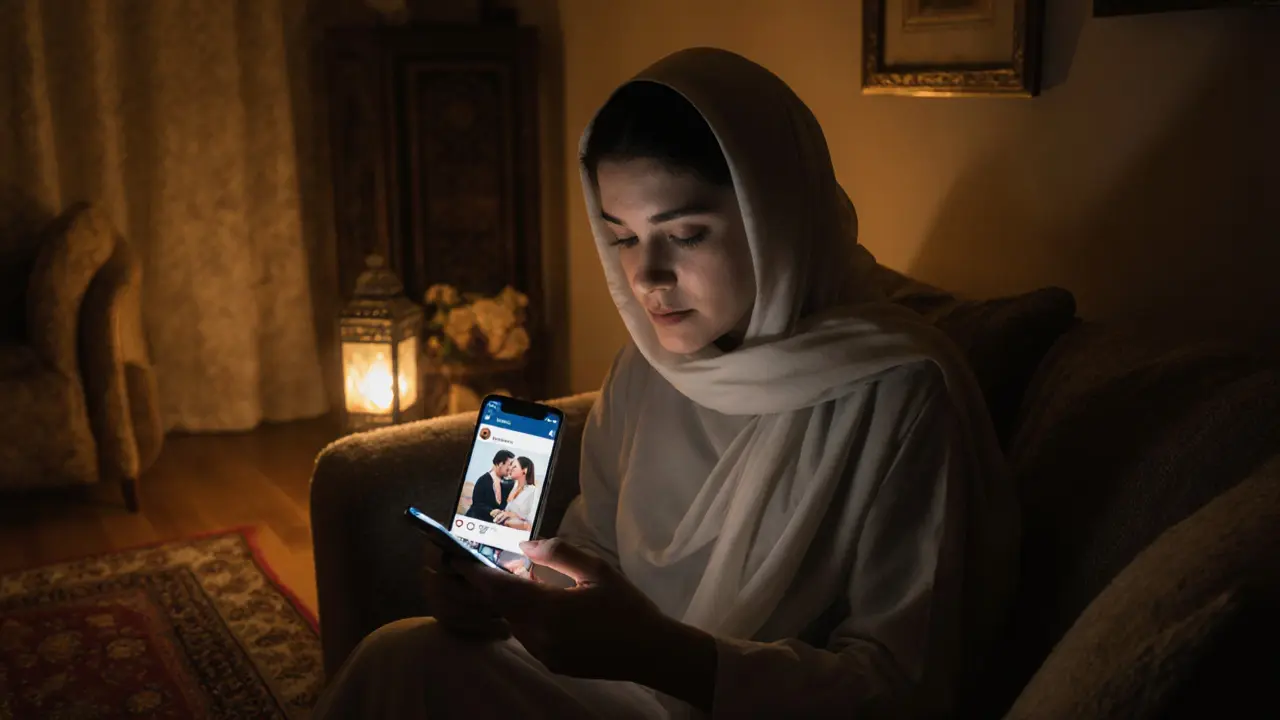When you think of Dubai, images of luxury skyscrapers, golden deserts, and ultra-modern malls often come to mind. But beneath the surface of its glossy exterior, there’s a quiet, complex conversation happening about sex-what’s acceptable, what’s hidden, and where it comes from. And a big part of that conversation? Popular culture.
For decades, Dubai has walked a tightrope between global influence and local values. Western movies, TikTok trends, and K-pop idols flood screens across the city. Young Emiratis scroll through Instagram reels showing intimate relationships, while their grandparents still remember when public displays of affection were unthinkable. This clash isn’t just generational-it’s cultural, and it’s changing how people in Dubai think about sex, intimacy, and identity.
What Popular Culture Is Showing vs. What the Law Allows
Dubai’s legal system is rooted in Islamic principles. Public displays of affection, cohabitation outside marriage, and explicit content are restricted. But the digital world doesn’t care about borders. A 19-year-old student in Deira can watch a Netflix romantic comedy where characters sleep together before dating, then walk outside to see a billboard warning against ‘immoral behavior.’
The disconnect isn’t just confusing-it’s shaping behavior. A 2024 survey by the Dubai Culture Authority found that 68% of Emiratis under 25 say they’ve changed their views on relationships because of what they’ve seen online. Not because they’re rejecting tradition, but because they’re seeing alternatives that feel real, relatable, and emotionally honest.
Think about it: when you grow up seeing love portrayed as passionate, spontaneous, and physically expressive in global media, but told in school that touching someone’s hand in public is inappropriate, your brain starts to reconcile those two worlds. Some do it by hiding their behavior. Others do it by quietly redefining what’s acceptable.
Music, Movies, and the Quiet Rebellion
Arabic pop music used to be safe-romantic ballads about longing and purity. Now, artists like Balqees and Nancy Ajram are releasing songs with sensual rhythms and lyrics that hint at desire without crossing lines. These aren’t explicit. But they’re suggestive. And they’re everywhere: in taxis, at weddings, on radio stations.
Hollywood and Bollywood films show up on streaming platforms with Arabic subtitles. Scenes that would be cut in other Gulf countries are left intact in Dubai’s cinemas. A couple holding hands on screen? Fine. A kiss? Sometimes it’s blurred, sometimes it’s not. The inconsistency sends a message: *You can watch this, but don’t act like it.*
And yet, people do. Social media is full of couples in Dubai posting photos with their arms around each other, using hashtags like #DubaiLove or #OurStory. They’re not breaking laws-they’re testing boundaries. And the response? Mostly silence. No arrests. No headlines. Just more people doing the same.
The Role of Social Media and Influencers
Influencers in Dubai are the new storytellers. They don’t preach. They share. A 26-year-old Emirati woman with 120,000 followers posts about her engagement, her wedding night, her feelings about intimacy after marriage. She doesn’t show nudity. She doesn’t use vulgar language. But she talks openly about desire, communication, and emotional connection.
Her posts get thousands of comments-not from foreigners, but from young Emirati women saying, ‘I never thought I could feel this way,’ or ‘My parents think I’m too modern. But you made me feel normal.’
This is how culture shifts: not with protests or laws, but with quiet, personal revelations. Social media gives people permission to feel what they’ve been told they shouldn’t. And in a place like Dubai, where privacy is sacred, that’s powerful.

Education and the Silence Around Sex
Sex education in Dubai’s public schools is minimal. It’s often limited to biology lessons about reproduction, with no discussion of consent, pleasure, or emotional health. Religious teachers might mention modesty. But no one talks about what sex actually feels like, why people crave it, or how to have healthy relationships.
So where do young people learn? From YouTube tutorials, Reddit threads, and TikTok videos. A search for ‘how to talk to your partner about sex’ in Arabic pulls up hundreds of clips made by anonymous creators in Cairo, Riyadh, and Dubai. They’re not certified sex educators. But they’re answering questions no one else will.
One video, posted by a woman using a voice modulator, has over 800,000 views. She says: ‘You don’t have to be ashamed of wanting to feel close. That’s not sin. That’s human.’ That’s the kind of message that sticks.
Religion, Tradition, and the Nuances of Change
It’s easy to assume Dubai is conservative. But conservatism doesn’t mean stagnation. Many Emiratis see their faith as a guide, not a prison. They’re not rejecting Islam-they’re interpreting it in ways that fit modern life.
Imams in Dubai are starting to give sermons on marriage counseling. Not just ‘be obedient,’ but ‘listen to your spouse.’ Not just ‘avoid sin,’ but ‘build trust.’ The language is shifting. And people are listening.
Even the government is adapting. The Dubai Health Authority now offers free counseling for couples struggling with intimacy. The Ministry of Community Development runs workshops on healthy relationships. These aren’t Western imports-they’re local responses to local needs.
Popular culture didn’t destroy Dubai’s values. It forced them to evolve. And that’s not a threat. It’s a sign of maturity.

The Real Impact: From Shame to Understanding
The biggest change isn’t in what people do-it’s in how they feel about it.
Five years ago, a young woman in Dubai might have felt guilty for wanting to be kissed before marriage. Today, she might still choose to wait-but she doesn’t feel broken for wanting it. That’s the quiet revolution.
Popular culture didn’t make Dubai more sexual. It made it more honest. People are talking. They’re asking questions. They’re seeking answers that don’t come from a textbook or a sermon, but from lived experience.
And that’s how culture changes-not with laws, not with protests, but with a thousand small moments of courage: a post shared, a conversation started, a question asked in the dark, where no one is watching.
What Comes Next?
Dubai won’t become Berlin. It won’t suddenly legalize public nudity or same-sex marriage. But it’s already becoming a place where people can feel more freedom in private, even if they still follow rules in public.
The future isn’t about rebellion. It’s about balance. Young Emiratis are learning to hold two truths at once: that their faith matters, and that their feelings matter too.
Popular culture gave them the language to say it. Now, they’re writing the next chapter themselves.
Is sex openly discussed in Dubai?
No, sex isn’t openly discussed in public spaces or formal settings like schools and government offices. But in private, among friends, and increasingly online, conversations about relationships, desire, and intimacy are growing. Social media, YouTube, and private counseling are becoming safe spaces for these discussions.
Are Western ideas about sex changing Dubai’s laws?
No, Western ideas aren’t changing Dubai’s laws directly. The legal framework remains based on Islamic principles. But public attitudes are shifting quietly, influenced by global media. The government is responding not by changing laws, but by offering new services-like relationship counseling-that support healthier personal choices within existing rules.
Do young Emiratis reject traditional values because of pop culture?
Most don’t reject tradition-they reinterpret it. Many young people in Dubai still value family, faith, and modesty. But they also want emotional connection, mutual respect, and personal agency in relationships. They’re blending the two, not choosing one over the other.
Is it safe to post about relationships on social media in Dubai?
Yes, as long as content stays within legal boundaries-no nudity, no explicit language, no promotion of illegal acts. Many Emiratis post about love, engagement, and marriage openly. The authorities rarely intervene unless content is clearly provocative or violates public decency laws. Most posts are seen as personal expression, not rebellion.
How is Dubai’s approach to sex different from other Gulf countries?
Dubai is more exposed to global media and tourism, which makes it more receptive to outside influences. While countries like Saudi Arabia and Kuwait have stricter enforcement and less access to international content, Dubai’s economy relies on global connectivity. This creates more space for private shifts in attitude-even if public rules stay the same.




